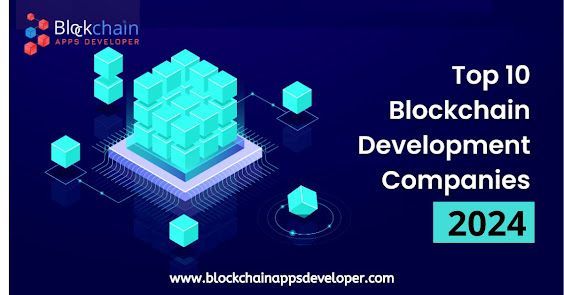Exploring the Business Benefits of Permissioned Blockchains - BlockchainAppsDeveloper
Permissioned Blockchains
A permissioned blockchain is a type of private blockchain that requires permission to join the network and access the data stored on the blockchain. Unlike public blockchains like Bitcoin and Ethereum which allow anyone to participate, permissioned blockchains have an access control layer that allows only validated participants to join. Participants are identified and must be granted permission to carry out actions like submitting transactions or mining blocks. Permissioned blockchains are often used within companies or between known groups that need to share a common ledger but want to place restrictions on who can participate. They provide more privacy but relinquish some decentralization. Common platforms used for building permissioned blockchains are Hyperledger Fabric and Corda. Also We are experts in Create your Own Blockchain , Blockchain Game Development Services worldwide.
Business Benefits of Permissioned Blockchains
In the dynamic landscape of blockchain technology, permissioned blockchains have emerged as a preferred choice for diverse business and enterprise applications. Some of the benefits are listed below.
Streamlined Business Processes
A permissioned blockchain enables optimized workflows and coordinated operations across business units and partners.
Lower Transaction Fees
Consensus mechanisms in permissioned blockchains cut out middlemen and reduce fees associated with transactions.
Quicker Transaction Validation
Transactions are validated rapidly on permissioned blockchains due to known participant identities and configurable consensus rules.
Configurable Governance Model
Permissioned blockchains allow organizations to create governance structures with defined roles, controls, and decision rights.
Robust Security Safeguards
Provides identity management, access controls, and data encryption to enable security and privacy.
User Access Administration
Participant identities can be verified and appropriate access permissions allocated on a permissioned blockchain.
Encrypted Data Transmission
Data transmitted on permissioned blockchains is encrypted through cryptographic techniques to ensure privacy.
Tamper-Resistant Records
Transactions recorded on permissioned blockchains are extremely difficult to alter due to cryptographic hashes and distributed data storage.
Ecosystem Integration Capabilities
Permissioned blockchains feature interoperability tools and APIs to integrate with existing IT systems and external networks.
Reinforced Partner Networks
Participant identity and transaction visibility promote collaboration and accountability within permissioned blockchain partner ecosystems.
Built-in Trust Mechanisms
Permissioned blockchains include identity, reputation, and tokenized incentive systems to establish trust between participants.
Legacy System Connectivity
APIs and middleware enable permissioned blockchains to exchange data and transactions with external systems.
Feature-Drenched Permissioned Blockchains
Interoperability : Permissioned blockchains are designed for seamless integration across systems using APIs and middleware protocols.
Configurable Consensus : It allows for consensus mechanisms like RAFT and PBFT to enable faster transactions with known validators.
Customized Development : Permissioned solutions allow for optimized blockchain network design, tooling, and integration tailored to specific business requirements.
Transparency : Network participants can configure transaction and data visibility based on use case privacy needs.
Compliance Controls : Permissioned blockchain provides features to support regulatory requirements related to data governance, auditability, and reporting.
Sustainability : Consensus algorithms in permissioned blockchains are energy-efficient and sustainable compared to proof-of-work models.
Popular Permissioned Blockchain Platforms
Hyperledger Fabric - An open-source project started by the Linux Foundation to support permissioned blockchains for enterprise use cases. It offers modular architecture, confidential transactions, and scalability.
R3's Corda - Designed for financial services to record, manage, and automate legal agreements between businesses. Key features include privacy, security, interoperability, and avoidance of unnecessary transaction validation costs.
Quorum - Developed by JP Morgan, it is designed for the financial sector. Quorum supports data privacy and aims to combine the best of public and private blockchains.
Digital Asset - Developed in partnership with Accenture to model business processes and integrate them with permissions, identity, and settlement finality. Key clients include major financial institutions.
Chain Core - Enterprise-grade platform with cryptographic security to issue and transfer assets on the blockchain network. Used across various sectors like healthcare, finance, manufacturing, etc.
Future Of Permissioned Blockchain
Permissioned blockchains are gaining traction for use cases like supply chain tracking, financial settlements, and digital identities where enterprises need to share data selectively in a trusted manner. As the technology matures, permissioned blockchains are poised for rapid evolution. Scalability will improve via the integration of layer 2 protocols like state channels that reduce the data processing burden of the base layer blockchain. Privacy enhancements will come from zero-knowledge proofs allowing validations without revealing transaction details. The deployment will get easier with blockchain-as-a-service models and turnkey solutions from major cloud providers. Interoperability across different networks will allow enterprises to exchange data seamlessly.
Use Cases Of Permissioned Blockchains Across Industries
Here is an expanded list of use cases of permissioned blockchains across industries:
Finance and Banking
- Interbank payments settlements
- Trade finance platforms
- Regulatory compliance
Supply Chain Management
- Product provenance tracking
- Inventory management
- Logistics optimization
Healthcare
- Electronic health records
- Clinical trial data management
- Insurance claim processing
Education
- Digital certificates and credentials
- Record keeping and transcripts
Government Sector
- Digital identity frameworks
- Benefits disbursement
- Voting systems
Energy Sector
- Trading of renewable energy credits
- Billing and metering automation
Media and Entertainment
- Digital rights management
- Royalty payments tracking
Real Estate
- Property transactions processing
- Mortgage application and title management
Why Choose BlockchainAppsDeveloper For Blockchain Development Services?
BlockchainAppsDeveloper is a pre-eminent Blockchain Development Company that provides end-to-end blockchain development services for building innovative decentralized applications on both public and private blockchains. With a talented distributed team of blockchain developers, designers, RnD team, project managers, etc we have delivered many blockchain projects across various domains to the clients globally. The key reasons to hire BlockchainAppsDeveloper are,
One-stop solution for consulting, building, and integrating blockchain to businesses in the digital landscape.
Right guidance on technology selection, platform, and tools.
Flexible engagement models tailored to project needs.
High focus on quality, security, and meeting timelines.
Blockchain solutions at a reasonable cost backed by streamlined processes.
Available round-the-clock with assistance from professional blockchain developers.




Comments
Post a Comment